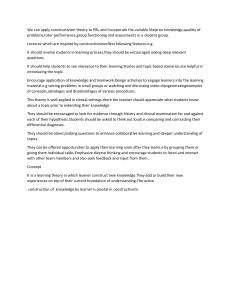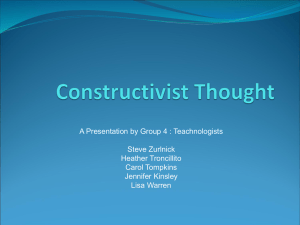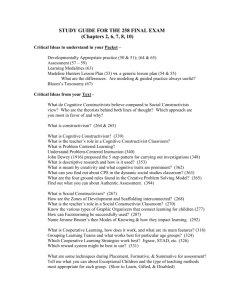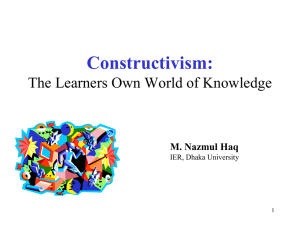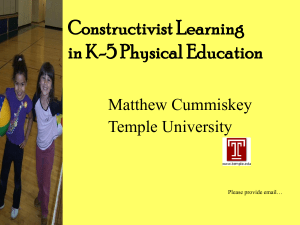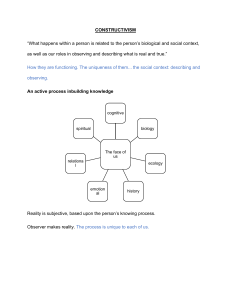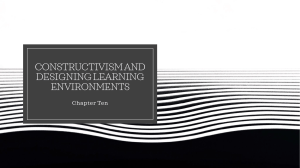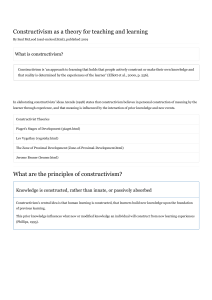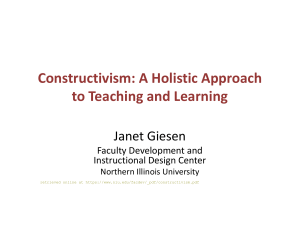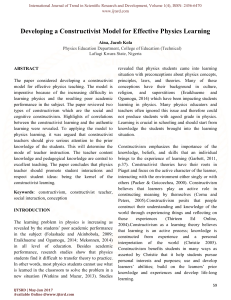Learning Theory
advertisement
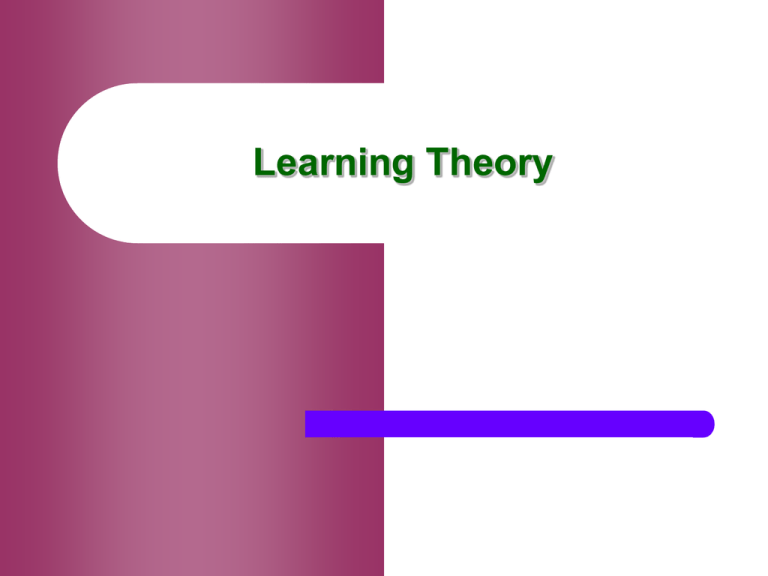
Learning Theory Objectivism vs Constructivism Learning theories can be viewed from two opposed perspectives: objectivism and constructivism (Jonassen, 1991). Objectivism Behavioural theories based on objectivism view learning as a passive process in which learners uncritically absorb knowledge from instructors (Ahmad et al., 1998). – knowledge is acquired from external realities. Constructivism The constructivist approach representing cognitive theory assumes that a learner learns better when he/she discovers things for themselves. – – Knowledge is seen to be acquired in the learner’s mind (Watkins, 2000). A learner controls the pace of learning himself/herself and the instructors play the role of support rather than one of direction (Ahmad et al., 1998). Extensions of Constructivism The constructivist model has some extensions including collaborativist model and cognitive information processing model. Socioculturalist model, shares many similarities with the constructivist model in its philosophical assumptions and goals, but differs primarily on the importance of the cultural dimension (Leidner and Jarvenpaa, 1995).
